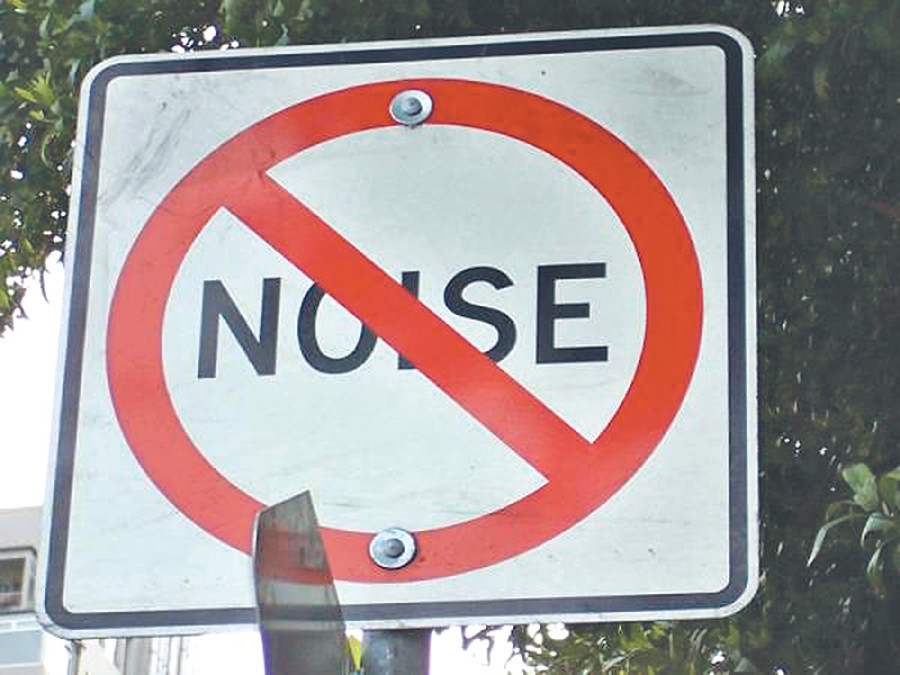Opinion
Protect community health
Noise pollution is a major health hazard; Nepal must learn to curb it through regulation and enforcement
Khagendra N. Sharma
Several programs are being conducted in the name of Srimad Bhagawat Saptaha Mahapuran in public squares all around the country. As is implied by the name, these are week long programs on the recitation of a mythological scripture called Srimad Bhagawat. I know of one religious organisation that has vowed to conduct 108 Saptaha Mahapuran recitation programs in different parts of Nepal as well as some Indian religious shrines. There are many more such organisations that conduct the same series of recitation programs in different parts of the country. Apart from these organisations, there is now a trend for academic institutions to conduct these Purans to raise money for their respective schools and colleges. Furthermore, families also conduct such recitations for the redemption of the souls of their deceased family members, particularly those that have died during the past year. On top of all these are innumerable non-stop 24 hour Bhajan programs. Myriad communities will be blasted by the sound from these programs.
Audible torture
I admire the spirit of the people who are behind the propagation of the religious renaissance; they think they will revive the Hindu faith. But my concern here is community health. Whatever programmes are undertaken these days, they are accompanied by an amplified speaker system. From what I have observed, the speaker system is always at its loudest pitch, so loud that your ears start to ache within a couple of minutes. If you are invited as an audience and are an attentive listener, you will have a great headache in less than half an hour. If you have some kind of ear problem, you are sure to lose or face a radical reduction of your hearing power. These are direct risks for the immediate audience. But the problems do not end here. A far larger problem lies in the communities that live in the surroundings. All kinds of people live in the communities. Old people with insomnia are hit the hardest. So are small babies that need sound sleep. There may be people with mental or psychological problems who need peace of mind. There are schools and colleges where it is impossible to teach or study with full concentration. Shops, eateries and other social venues are so inundated with the piercing sound that it is hardly possible to have meaningful conversations. In short, it is not possible to have a peace of mind all around the Puran venue.
Community health is a nation’s responsibility. There is a state agency named the Ministry of Health to look after health related problems. The problem that I tried to present in the above paragraphs can be defined as the problem of noise pollution. But in Nepal noise pollution is not considered a health hazard. The utmost the country has attempted in this regard is curbing the use of deafening vehicle horns on the roads. People have found a way to cheat the system, however, by simply not blowing horns at a traffic intersection with police presence, and blowing it everywhere else.
Planned action
The volume of sound must be maintained at a level that it is tolerable to the ear. Loud speakers are there to facilitate good hearing in the area where the recitation program is being conducted. It is not meant to be audible in the next street or hill. Sound is measured in Decibels. What Decibel level is acceptable must be defined in the rules, by using expert advice. Exceeding that safe level must be made punishable. Appropriate laws and rules must be formulated to check the unlimited aggression through unbearable sound in the name of conducting religious programs.
In Nepal, there is practically no monitoring by the enforcing agency. Law enforcement responsibility must be specified in the law or in the rules so that the failure to monitor can be identified. Another point of importance is that, as of now, no permission is required to conduct programs of public recitation. With the new law enforcement, permission must be made compulsory for conducting programs in public places. The legal requirements for the programs should then be tied to the organiser’s responsibility. Sound control is an important aspect of community health. Playing loud music into the night must be stopped. If people stay in vigil, it must be operated indoors without disturbance to the neighbours.
Finally, a massive awareness campaign should be launched to educate the general public about the health hazards caused by the noise pollution. Enjoying religious freedom should not include the right to disturb communities by creating noise pollution.
- Sharma is a political analyst




 20.22°C Kathmandu
20.22°C Kathmandu










